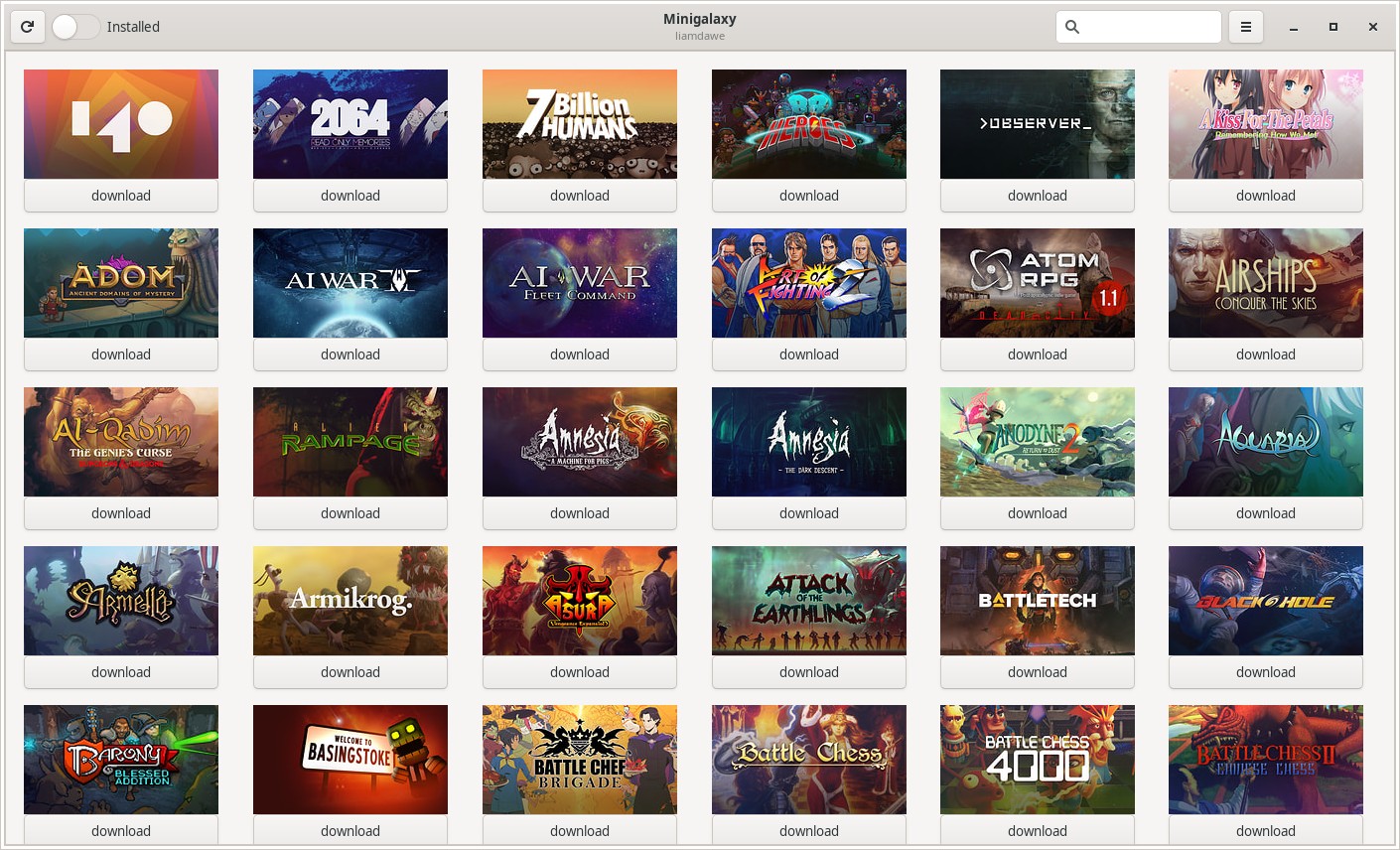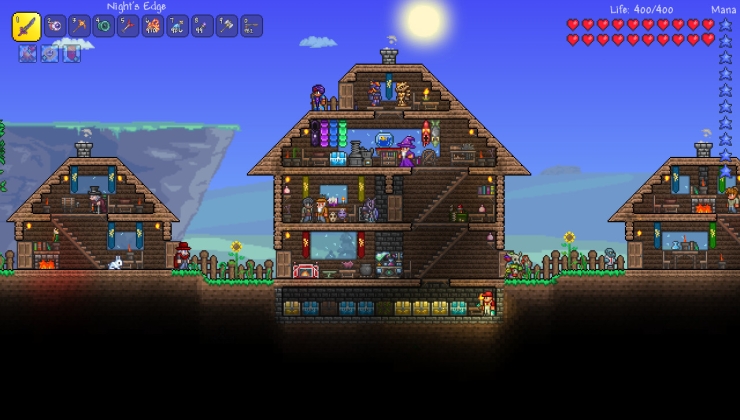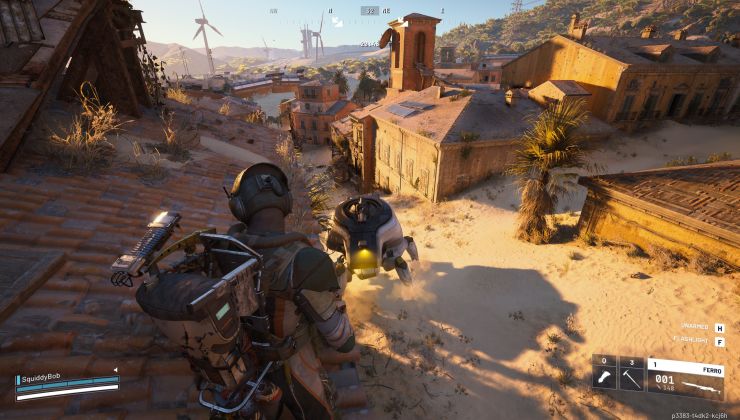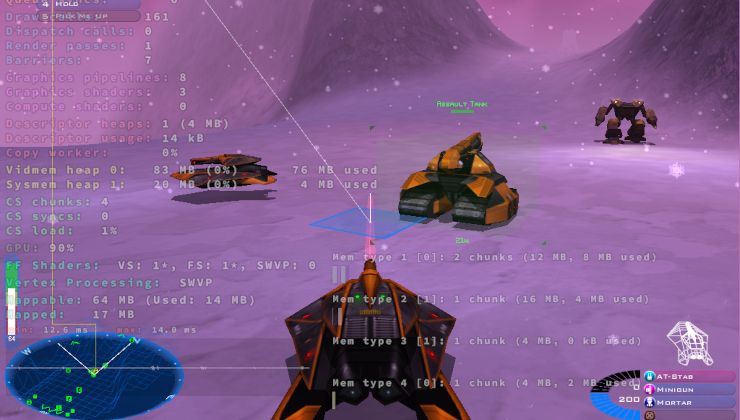Find getting your Linux games from GOG a bit of a hassle since they don't support Galaxy on Linux yet? Enter the free and open source application Minigalaxy. It's being developed by Wouter "sharkwouter" Wijsman who also works on VaporOS, a special build of SteamOS with a ton of extra enhancements.
Currently quite simple, it allows you to login and access your entire GOG library to download and play. You can pick your language, adjust install location, search and a bit more. A little rough around the edges, but once this gets further along it could be a nice little GOG client for Linux users.
It's comparable to Games Nebula, another open source GOG client for Linux although that hasn't seen a released since June 2018, sadly. So it's good to see someone else come along to try and smoothen-out the process of getting GOG games on Linux (other than downloading from GOG directly). You could use Lutris, but Lutris does a lot and can be confusing. The key point here about Minigalaxy is that it's streamlined.
The developer has plans to extend Minigalaxy, for updating games and actually remove games once installed.
You can find it on GitHub, Arch/Manjaro users can grab it from the AUR.
Quoting: tmtvl*sigh* The state of Linux gaming...Steam is not really DRM. It's up to the publisher to use Steam DRM or not. Take Stardew Valley for instance. You can launch the game without logging into Steam.
GOG is DRM free, but doesn't support Linux with its client.
Steam heavily supports Linux, but are very DRM... though not as much as Stadia.
Itch is wonderful, but is very lacking in many different genres.
Oh well, it's the dawn of a new decade, who knows what the 2020's will bring.
I did however use gog mini galaxy in the last couple weeks but my password could have been stolen over a year ago and just kept in a database until just now when someone decides to steal it. Real bummer.
Quoting: TheRiddickMAN I just got my GOG account stolen. Not sure how it happened because I didn't get notifications about it happening, very weird.Did you try contacting support about it?
I did however use gog mini galaxy in the last couple weeks but my password could have been stolen over a year ago and just kept in a database until just now when someone decides to steal it. Real bummer.
EDIT: Seems its sorted now. Problem was I somehow put a typo in the change email address when I did that a while ago and it never bothered to verify said email and just went ahead and accepted the invalid email as final for some reason.
Last edited by Gerarderloper on 10 Mar 2020 at 6:15 am UTC








 How to setup OpenMW for modern Morrowind on Linux / SteamOS and Steam Deck
How to setup OpenMW for modern Morrowind on Linux / SteamOS and Steam Deck How to install Hollow Knight: Silksong mods on Linux, SteamOS and Steam Deck
How to install Hollow Knight: Silksong mods on Linux, SteamOS and Steam Deck